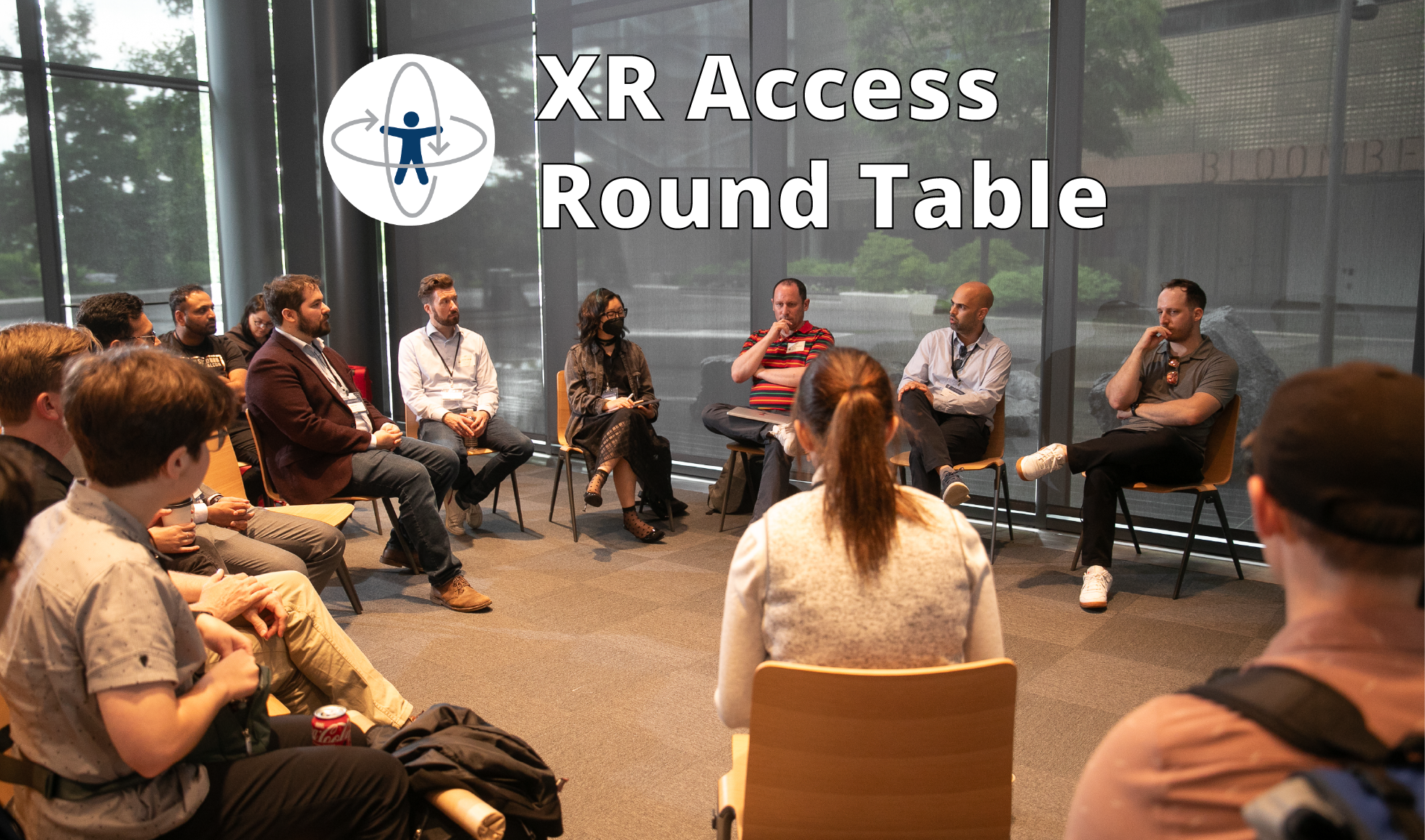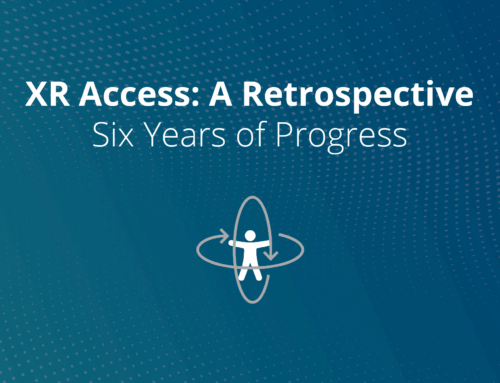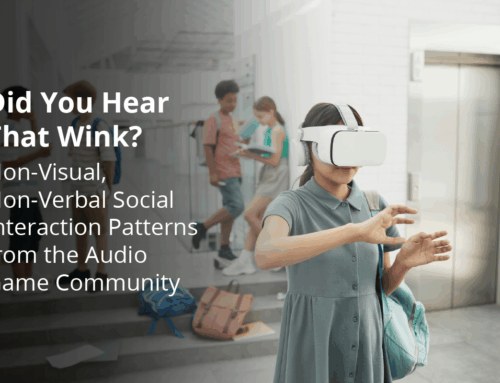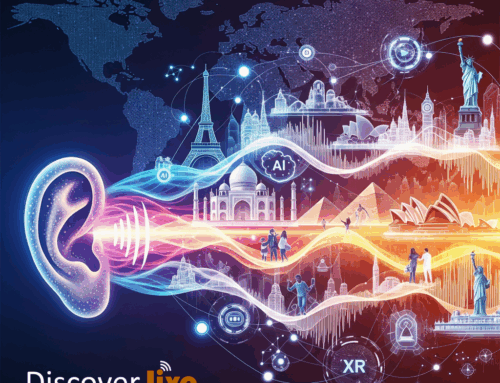Every 4th Monday
Join us every fourth Monday for dynamic discussions about the latest research, groundbreaking products, and innovative solutions shaping augmented and virtual reality accessibility. This is a regular event that gives the members of the XR Access community a chance to connect and chat about the ups and downs of XR accessibility. Let’s build a more inclusive XR future, together!
If you require accommodations such as sign language interpretation, please email info@xraccess.org no fewer than 72 hours before the event.
Event Details
Date: Selected dates in 2025
Time: 1pm PT / 4pm ET
Location: Zoom
Round Table Records
September 22, 2025
Summary
The September 22 XR Access Round Table centered heavily on Meta’s new $800 smart glasses with neural wristband, exploring their potential for real-time captioning, screen reader integration, and gesture control through nerve impulses, while raising concerns about privacy and data processing. Participants shared insights from various accessibility projects, including Petra Kuppers’ offline-first VR experience “Planting Disabled Futures” that uses echolocation and spatial audio, David Tucker’s work on racing game accessibility at iRacing, and Jesse Anderson’s assistive technology work with blind students. Dylan Fox introduced his research on AI-powered search tools for XR accessibility that could replace keyword-based searches with conversational interfaces, leading to broader discussions about local versus cloud-based AI processing, the evolution from rigid voice commands to natural language understanding, and design philosophy questions around user autonomy versus AI assistance. The group emphasized the importance of involving disabled communities in technology design while highlighting both the promise of emerging tools and ongoing challenges with standardization, platform approval processes, and balancing assistance with user independence.
August 25, 2025
Summary
Discussions at the round table covered VR in education, highlighting examples like immersive VR for primary schools and VR film festivals, alongside the University of Arizona’s MRI Scanner Virtual Tour. Participants noted VR’s “hype cycle” reaching a “plateau of productivity,” with personal uses like exercise and movies shared, while also raising concerns about youth supervision and predatory monetary practices in platforms like Roblox. The conversation then moved to accessible XR development, mentioning initiatives like the Accessible Games Initiative and VR training for various scenarios, including clean room behavior and semiconductor fabrication. Accessibility inquiries from U Oregon’s immersive technologies program led to the idea of an XR accessibility help bot using RAG, and the FS Companion website for BLV users was also brought up.
July 28, 2025
Video not available.
Summary
The XR Access Round Table discussed updates on Meta headsets, including a new screen reader that, while an improvement, still has limitations for blind users. Attendees introduced themselves and their work: Jesus Eduardo Russian on accessibility for physically disabled people in VR, Eudora Struble on making XR accessible in higher education, Binna Lee on industrial design for visually impaired users, Sarah Swee on AI-powered smart glasses and building accessible VR environments for students, Mandy Canales on teaching dance and improv in VR Chat, and Holli Smith on accessibility standards at Meta. Favorite VR apps were shared, and there was a discussion about Slack vs. Discord and future monthly round tables. The group also touched on Android XR, the connection between smartphones and smart glasses, and the implications of AI agents and the slow pace of policy in relation to technology.
May 26, 2025
Summary
The round table discussion on May 26, 2025, covered the impact of the current US administration on diversity, equity, and inclusion (DEI) initiatives, the excitement around new software and hardware in the XR space, and open questions about leadership understanding of XR benefits. Participants expressed frustration over the suppression of DEI efforts and shared insights on how language and communication strategies are evolving to keep these conversations alive. They also discussed the potential of XR technologies like AndroidXR, VisionOS, and various haptic and hand-tracking tools, highlighting challenges with current hardware such as glasses and headsets. The conversation touched on the importance of interoperability and open protocols, and the need for leadership to understand and embrace the benefits of XR technology.




